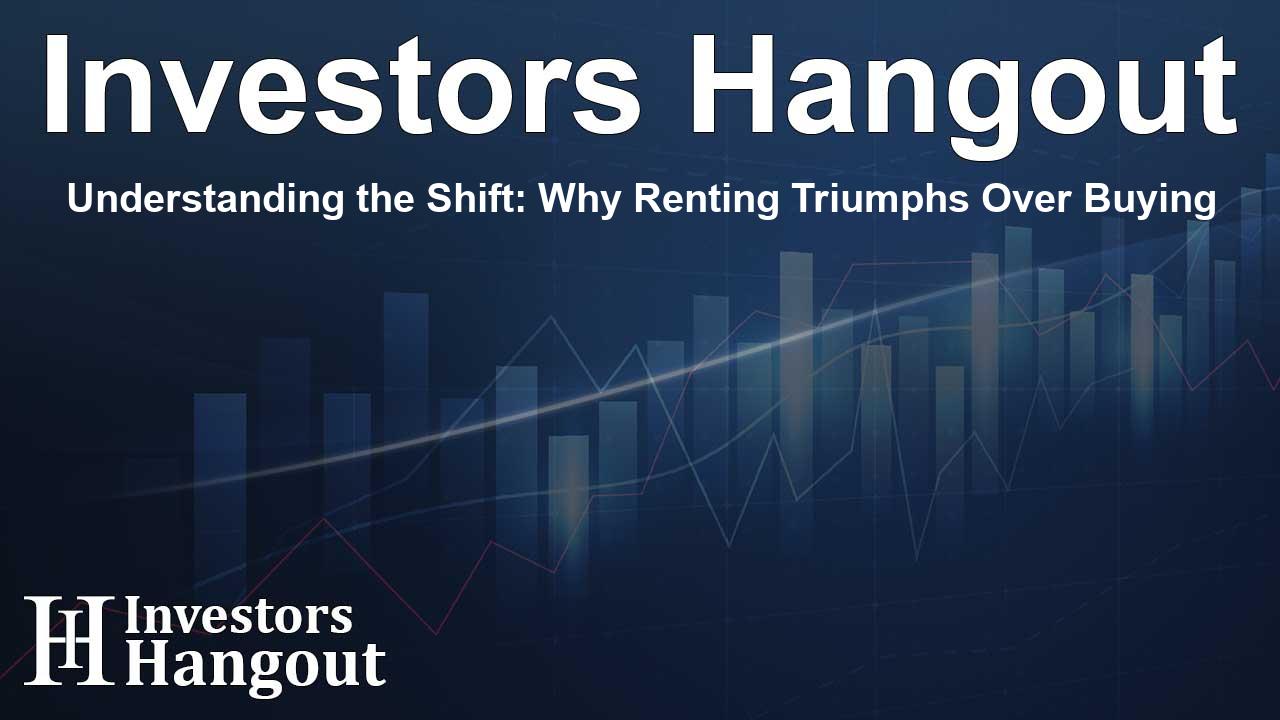Understanding the Shift: Why Renting Triumphs Over Buying

The Affordability Dilemma: Renting vs. Buying
As the dynamics of the housing market change, many potential homeowners find themselves questioning whether to rent or buy. Recent data indicates that the average median asking rent in the United States has reached $1,703, marking a slight decline of 0.2% year-over-year. This raises a critical question: is renting indeed still more affordable than buying a home in today's market?
Renting Is More Affordable Across Most U.S. Metros
Across the majority of major metropolitan areas, renting a median-priced unit remains more affordable for median wage earners compared to purchasing a median-priced home. This trend is significant as it highlights the shifting landscape of housing affordability. Specifically, if we exclude the unique cases of Detroit and Pittsburgh, renters enjoy a distinct financial advantage in nearly all other significant regions.
What's Behind the Rental Affordability?
The decrease in rental prices combined with ongoing high mortgage rates signifies a substantial shift toward a more renter-friendly market. In fact, a year ago, only six markets favored buyers, illustrating the slow recovery of rental affordability after a peak in 2021 and 2022. Experts suggest that this ongoing trend toward renting could lead to an increase in the number of renter households in the coming years, swaying away from traditional homeownership.
Why Are Detroit and Pittsburgh Anomalies?
Interestingly, Pittsburgh and Detroit are the two markets where buying a home has become more economical compared to renting. They feature the lowest median listing prices among the top 50 metros, with Pittsburgh's prices around $229,700 and Detroit at $239,950. The affordability of buying in these areas is a reflection of their unique economic conditions, where a growing share of income is allocated to rent, further nudging homeownership into the spotlight.
A Society of Renters?
Even with the slight declines in overall rental prices, many renters still find themselves dealing with the residual impacts of the elevated rates from previous years. For instance, rent levels in January 2025 are still above those recorded in early 2020 by $257, representing an increase of 16.1%. This brings to light a crucial aspect: the market's recovery may take longer than anticipated, shifting more Americans toward renting.
Where to Rent? Analyzing Renter-Friendly Markets
Overall, the market is shifting toward increased affordability in renting versus buying. In addition to the historical data, specific metro areas such as New York, San Jose, and Kansas City are trends to key areas where both rental and home-buying costs have seen upward pressure. In contrast, markets like Houston, Las Vegas, and Baltimore are emerging as comprehensive renter-friendly environments.
Key Socioeconomic Impacts on Renting vs. Buying
This shift toward rental accommodation is influenced by several factors, including wage growth, income shares spent on housing, and evolving mortgage rates. It is crucial to understand that while renting may seem favorable, various external factors can dramatically affect long-term housing strategies.
The Road Ahead: The Future of Housing
As we navigate the complexities of the housing market, it is clear that understanding the various influences of rental and buyer affordability will shape future trends. The increasing difficulty in achieving homeownership, blended with complex economic variables, forces many to reassess long-held beliefs about renting versus buying.
Changing Perceptions of Homeownership
The significance of owning a home continues to hold a place in the American Dream. Yet with lower monthly rental costs prevailing in most metro areas, this dynamic reveals a paradigm shift. It’s becoming increasingly apparent that a considerable number of individuals may prioritize flexibility, financial stability, and access to urban locales by renting instead.
Frequently Asked Questions
Why are rents declining in the U.S.?
Rents are experiencing a slight decline due to the ongoing adjustments in the housing market, particularly in response to previous peaks and the rising costs of homeownership.
What factors contribute to renting being more affordable than buying?
The combination of high mortgage rates and static rental prices means that many Americans find renting offers a more manageable monthly expense compared to purchasing a home.
What unique conditions exist in Detroit and Pittsburgh?
These metro areas feature some of the lowest median home prices, making home buying more affordable than renting for residents in those markets.
Why might renters feel pressured despite lower rents?
Many renters are still grappling with the financial fallout from rapid rent growth in the preceding years, which can leave an ongoing impact on their household budgets.
How is the housing market expected to evolve in the coming years?
Experts predict continued shifts towards renting over buying due to rising costs of homeownership and changing economic dynamics, potentially increasing the number of renter households.
About The Author
Contact Kelly Martin privately here. Or send an email with ATTN: Kelly Martin as the subject to contact@investorshangout.com.
About Investors Hangout
Investors Hangout is a leading online stock forum for financial discussion and learning, offering a wide range of free tools and resources. It draws in traders of all levels, who exchange market knowledge, investigate trading tactics, and keep an eye on industry developments in real time. Featuring financial articles, stock message boards, quotes, charts, company profiles, and live news updates. Through cooperative learning and a wealth of informational resources, it helps users from novices creating their first portfolios to experts honing their techniques. Join Investors Hangout today: https://investorshangout.com/
The content of this article is based on factual, publicly available information and does not represent legal, financial, or investment advice. Investors Hangout does not offer financial advice, and the author is not a licensed financial advisor. Consult a qualified advisor before making any financial or investment decisions based on this article. This article should not be considered advice to purchase, sell, or hold any securities or other investments. If any of the material provided here is inaccurate, please contact us for corrections.
